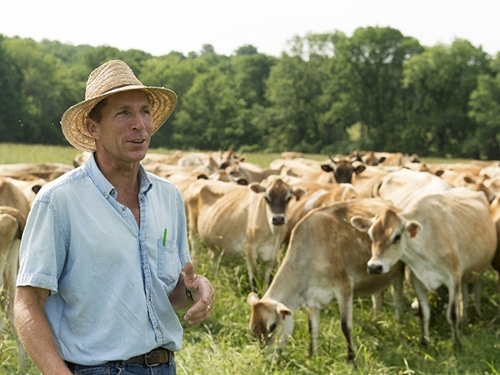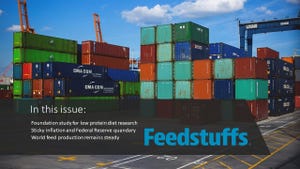Production methods are focus of today, but next big trend will be what’s in food.

Changes in production methods have traditionally been driven by advances in technology that result in increases in efficiency or decreases in cost. Recently, however, production changes have been increasingly market driven, creating a new dynamic and road ahead for those in the livestock industry.
George Siemon, Organic Valley chief executive officer, said even just three to four years ago, he never would have projected the dramatic push from animal activist groups and their ultimate success in getting state laws passed dictating production methods, coupled with the many announcements from companies to offer their customers what these groups are seeking.
“You have companies trying to stay ahead of the trends and answer consumer concerns,” Siemon said.
Siemon said he expects to see a continued emphasis on providing animals with the ability to exhibit “basic animal behaviors,” such as rooting for hogs. In addition, organic producers must continue to stay ahead of the curve on the production practices desired by consumers. Grass fed, for example, is a segment that Organic Valley also is seeing an increased interest in right now.
Stewart Leeth, Smithfield vice president of regulatory affairs and chief sustainability officer, said although the current focus is on animal care, the next trend will be about what’s in food. “Consumers are very concerned on how animals are treated, but that’s being eclipsed by (questions about) what’s in your food,” Leeth said.
There is a real movement to simplify labels and take things out that don’t need to be there. Ingredients like “potassium sorbate” and other ingredients that extend the shelf life are “big words that are scary to folks,” Leeth explained.
Bruce Stewart-Brown, senior vice president, food safety and quality, for Perdue Farms, said the company's vision is to be the most trusted name in food and agricultural products. “What drives us is that you have to earn people’s trust and figure out what they want to know about you,” he said.
Perdue Farms is changing production methods “to address broiler chicken growth rates that cause discomfort to birds.” They company also has adopted measures to significantly reduce antibiotic use on its farms.
Stewart-Brown said biosecurity cannot be an excuse to close doors, and farmers should instead offer tours; opening their doors offers a way to hear different perspectives. Tours on the company's farms are up 500% and provide a way to check how things are said, determine if a simpler or more appropriate communication message is needed and help him refine the subject.
Smithfield is on track to eliminate the use of sow gestation crates by 2017. Leeth said the decision was made based on listening to customers, as more than 70 foodservice companies and retail chains had made commitments to end sourcing pork from sows housed in gestation crates.
“When grouped together, there is dominance between sows, but we manage that,” he said. The group production system requires more focus on management and animal husbandry. Leeth said the transition has proved to be positive for the animal welfare of the sows, although it doesn’t offer any environmental difference and does come at an increased cost.
Stewart-Brown said as some of these niche markets grow, it is important that companies take the time to study and evaluate the impact on the animals as well as how to implement changes such as completely eliminating antibiotic use.
“You can’t go in there and make changes without studying (the animals) first. That’s not good for animals and not good for the final product,” he noted.
About the Author(s)
You May Also Like


.png?width=300&auto=webp&quality=80&disable=upscale)


